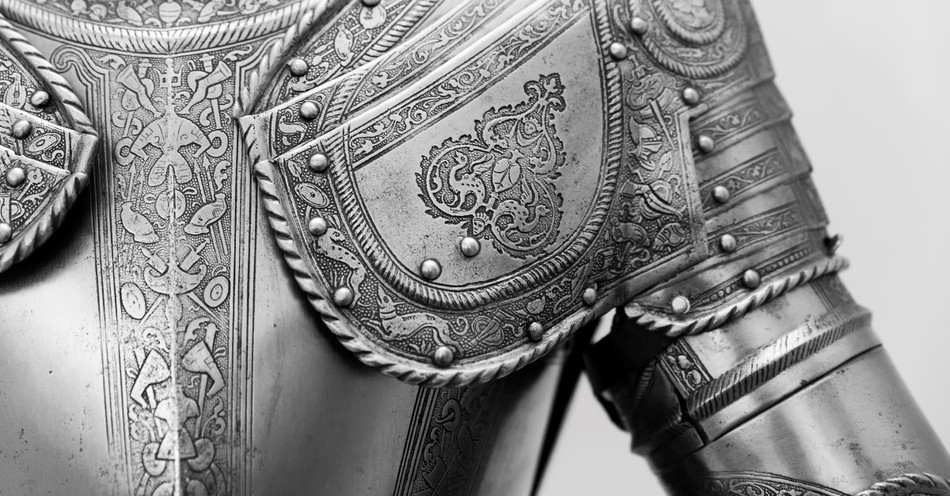Proverbs 6:6-19
6 Go to the ant, you sluggard; consider its ways and be wise! 7 It has no commander, no overseer or ruler, 8 yet it stores its provisions in summer and gathers its food at harvest. 9 How long will you lie there, you sluggard? When will you get up from your sleep? 10 A little sleep, a little slumber, a little folding of the hands to rest- 11 and poverty will come on you like a thief and scarcity like an armed man.
12 A troublemaker and a villain, who goes about with a corrupt mouth, 13 who winks maliciously with his eye, signals with his feet and motions with his fingers, 14 who plots evil with deceit in his heart- he always stirs up conflict. 15 Therefore disaster will overtake him in an instant; he will suddenly be destroyed-without remedy. 16 There are six things the Lord hates, seven that are detestable to him: 17 haughty eyes, a lying tongue, hands that shed innocent blood, 18 a heart that devises wicked schemes, feet that are quick to rush into evil, 19 a false witness who pours out lies and a person who stirs up conflict in the community.
Other Translations of Proverbs 6:6-19
King James Version
6 Go to the ant, thou sluggard; consider her ways, and be wise: 7 Which having no guide, overseer, or ruler, 8 Provideth her meat in the summer, and gathereth her food in the harvest. 9 How long wilt thou sleep, O sluggard? when wilt thou arise out of thy sleep? 10 Yet a little sleep, a little slumber, a little folding of the hands to sleep: 11 So shall thy poverty come as one that travelleth, and thy want as an armed man.
12 A naughty person, a wicked man, walketh with a froward mouth. 13 He winketh with his eyes, he speaketh with his feet, he teacheth with his fingers; 14 Frowardness is in his heart, he deviseth mischief continually; he soweth
English Standard Version
6 Go to the ant, O sluggard; consider her ways, and be wise. 7 Without having any chief, officer, or ruler, 8 she prepares her bread in summer and gathers her food in harvest. 9 How long will you lie there, O sluggard? When will you arise from your sleep? 10 A little sleep, a little slumber, a little folding of the hands to rest, 11 and poverty will come upon you like a robber, and want like an armed man.
12 A worthless person, a wicked man, goes about with crooked speech, 13 winks with his eyes, signals
The Message
6 You lazy fool, look at an ant. Watch it closely; let it teach you a thing or two. 7 Nobody has to tell it what to do. 8 All summer it stores up food; at harvest it stockpiles provisions. 9 So how long are you going to laze around doing nothing? How long before you get out of bed? 10 A nap here, a nap there, a day off here, a day off there, sit back, take it easy - do you know what comes next? 11 Just this: You can look forward to a dirt-poor life, poverty your permanent houseguest! Always Cooking Up Something Nasty
12 Riffraff and rascals talk out of both sides of their mouths. 13 They wink at each other, they shuffle their feet, they cross their fingers behind their backs. 14 Their perverse minds are always cooking up something nasty, always stirring up trouble. 15 Catastrophe is just around the corner for them, a total smash-up, their lives ruined beyond repair. Seven Things God Hates 16 Here are six things God hates, and one more that he loathes with a passion: 17 eyes that are arrogant, a tongue that lies, hands that murder the innocent, 18 a heart that hatches evil plots, feet that race down a wicked track, 19 a mouth that lies under oath, a troublemaker in the family. Warning on Adultery
New King James Version
6 Go to the ant, you sluggard! Consider her ways and be wise, 7 Which, having no captain, Overseer or ruler, 8 Provides her supplies in the summer, And gathers her food in the harvest. 9 How long will you slumber, O sluggard? When will you rise from your sleep? 10 A little sleep, a little slumber, A little folding of the hands to sleep-- 11 So shall your poverty come on you like a prowler, And your need like an armed man.
12 A worthless person, a wicked man, Walks with a perverse mouth; 13 He winks with his eyes, He shuffles his feet, He points with his fingers; 14 Perversity is in his heart, He devises evil continually, He sows discord. 15 Therefore his calamity shall come suddenly; Suddenly he shall be broken without remedy. 16 These six things the Lord hates, Yes, seven are an abomination to Him: 17 A proud look, A lying tongue, Hands that shed innocent blood, 18 A heart that devises wicked plans, Feet that are swift in running to evil, 19 A false witness who speaks lies, And one who sows discord among brethren.
New Living Translation
6 Take a lesson from the ants, you lazybones. Learn from their ways and become wise! 7 Though they have no prince or governor or ruler to make them work, 8 they labor hard all summer, gathering food for the winter. 9 But you, lazybones, how long will you sleep? When will you wake up? 10 A little extra sleep, a little more slumber, a little folding of the hands to rest- 11 then poverty will pounce on you like a bandit; scarcity will attack you like an armed robber.
12 What are worthless and wicked people like? They are constant liars, 13 signaling their deceit with a wink of the eye, a nudge of the foot, or the wiggle of fingers. 14 Their perverted hearts plot evil, and they constantly stir up trouble. 15 But they will be destroyed suddenly, broken in an instant beyond all hope of healing. 16 There are six things the Lord hates- no, seven things he detests: 17 haughty eyes, a lying tongue, hands that kill the innocent, 18 a heart that plots evil, feet that race to do wrong, 19 a false witness who pours out lies, a person who sows discord in a family.
John 3:14
Other Translations of John 3:14
King James Version
14 And as Moses lifted up the serpent in the wilderness, even so must the Son of man be lifted up:
English Standard Version
14 And as Moses lifted up the serpent in the wilderness, so must the Son of Man be lifted up,
The Message
14 In the same way that Moses lifted the serpent in the desert so people could have something to see and then believe, it is necessary for the Son of Man to be lifted up -
New King James Version
14 And as Moses lifted up the serpent in the wilderness, even so must the Son of Man be lifted up,
New Living Translation
14 And as Moses lifted up the bronze snake on a pole in the wilderness, so the Son of Man must be lifted up,
Matthew Henry's Commentary on John 3:14
Commentary on John 3:1-21
(Read John 3:1-21)
Nicodemus was afraid, or ashamed to be seen with Christ, therefore came in the night. When religion is out of fashion, there are many Nicodemites. But though he came by night, Jesus bid him welcome, and hereby taught us to encourage good beginnings, although weak. And though now he came by night, yet afterward he owned Christ publicly. He did not talk with Christ about state affairs, though he was a ruler, but about the concerns of his own soul and its salvation, and went at once to them. Our Saviour spoke of the necessity and nature of regeneration or the new birth, and at once directed Nicodemus to the source of holiness of the heart. Birth is the beginning of life; to be born again, is to begin to live anew, as those who have lived much amiss, or to little purpose. We must have a new nature, new principles, new affections, new aims. By our first birth we were corrupt, shapen in sin; therefore we must be made new creatures. No stronger expression could have been chosen to signify a great and most remarkable change of state and character. We must be entirely different from what we were before, as that which begins to be at any time, is not, and cannot be the same with that which was before. This new birth is from heaven, Numbers 21:6-9. In this observe the deadly and destructive nature of sin. Ask awakened consciences, ask damned sinners, they will tell you, that how charming soever the allurements of sin may be, at the last it bites like a serpent. See the powerful remedy against this fatal malady. Christ is plainly set forth to us in the gospel. He whom we offended is our Peace, and the way of applying for a cure is by believing. If any so far slight either their disease by sin, or the method of cure by Christ, as not to receive Christ upon his own terms, their ruin is upon their own heads. He has said, Look and be saved, look and live; lift up the eyes of your faith to Christ crucified. And until we have grace to do this, we shall not be cured, but still are wounded with the stings of Satan, and in a dying state. Jesus Christ came to save us by pardoning us, that we might not die by the sentence of the law. Here is gospel, good news indeed. Here is God's love in giving his Son for the world. God so loved the world; so really, so richly. Behold and wonder, that the great God should love such a worthless world! Here, also, is the great gospel duty, to believe in Jesus Christ. God having given him to be our Prophet, Priest, and King, we must give up ourselves to be ruled, and taught, and saved by him. And here is the great gospel benefit, that whoever believes in Christ, shall not perish, but shall have everlasting life. God was in Christ reconciling the world to himself, and so saving it. It could not be saved, but through him; there is no salvation in any other. From all this is shown the happiness of true believers; he that believeth in Christ is not condemned. Though he has been a great sinner, yet he is not dealt with according to what his sins deserve. How great is the sin of unbelievers! God sent One to save us, that was dearest to himself; and shall he not be dearest to us? How great is the misery of unbelievers! they are condemned already; which speaks a certain condemnation; a present condemnation. The wrath of God now fastens upon them; and their own hearts condemn them. There is also a condemnation grounded on their former guilt; they are open to the law for all their sins; because they are not by faith interested in the gospel pardon. Unbelief is a sin against the remedy. It springs from the enmity of the heart of man to God, from love of sin in some form. Read also the doom of those that would not know Christ. Sinful works are works of darkness. The wicked world keep as far from this light as they can, lest their deeds should be reproved. Christ is hated, because sin is loved. If they had not hated saving knowledge, they would not sit down contentedly in condemning ignorance. On the other hand, renewed hearts bid this light welcome. A good man acts truly and sincerely in all he does. He desires to know what the will of God is, and to do it, though against his own worldly interest. A change in his whole character and conduct has taken place. The love of God is shed abroad in his heart by the Holy Ghost, and is become the commanding principle of his actions. So long as he continues under a load of unforgiven guilt, there can be little else than slavish fear of God; but when his doubts are done away, when he sees the righteous ground whereon this forgiveness is built, he rests on it as his own, and is united to God by unfeigned love. Our works are good when the will of God is the rule of them, and the glory of God the end of them; when they are done in his strength, and for his sake; to him, and not to men. Regeneration, or the new birth, is a subject to which the world is very averse; it is, however, the grand concern, in comparison with which every thing else is but trifling. What does it signify though we have food to eat in plenty, and variety of raiment to put on, if we are not born again? if after a few mornings and evenings spent in unthinking mirth, carnal pleasure, and riot, we die in our sins, and lie down in sorrow? What does it signify though we are well able to act our parts in life, in every other respect, if at last we hear from the Supreme Judge, "Depart from me, I know you not, ye workers of iniquity?"




Matthew Henry's Commentary on Proverbs 6:6-19
Commentary on Proverbs 6:6-11
(Read Proverbs 6:6-11)
Diligence in business is every man's wisdom and duty; not so much that he may attain worldly wealth, as that he may not be a burden to others, or a scandal to the church. The ants are more diligent than slothful men. We may learn wisdom from the meanest insects, and be shamed by them. Habits of indolence and indulgence grow upon people. Thus life runs to waste; and poverty, though at first at a distance, gradually draws near, like a traveller; and when it arrives, is like an armed man, too strong to be resisted. All this may be applied to the concerns of our souls. How many love their sleep of sin, and their dreams of worldly happiness! Shall we not seek to awaken such? Shall we not give diligence to secure our own salvation?
Commentary on Proverbs 6:12-19
(Read Proverbs 6:12-19)
If the slothful are to be condemned, who do nothing, much more those that do all the ill they can. Observe how such a man is described. He says and does every thing artfully, and with design. His ruin shall come without warning, and without relief. Here is a list of things hateful to God. Those sins are in a special manner provoking to God, which are hurtful to the comfort of human life. These things which God hates, we must hate in ourselves; it is nothing to hate them in others. Let us shun all such practices, and watch and pray against them; and avoid, with marked disapproval, all who are guilty of them, whatever may be their rank.